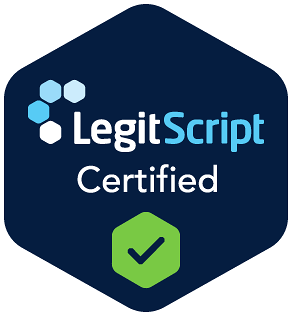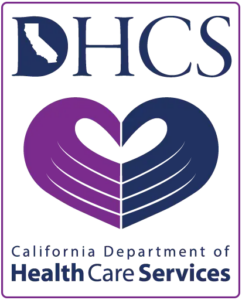Cocaine addiction affects millions of people worldwide, destroying relationships, careers, and health. Traditional treatment methods often fall short of addressing the complex nature of this powerful dependency.
We at Surf City Detox believe that innovative cocaine addiction treatment strategies can transform lives when combined with evidence-based care. Modern therapeutic approaches offer new hope for lasting recovery.
How Does Cocaine Rewire Your Brain and Body?
Cocaine alters brain chemistry within minutes of use and creates powerful dependency patterns that trap millions of Americans. The National Institute on Drug Abuse provides comprehensive resources covering drug use trends and statistics. When cocaine hits the brain, it blocks dopamine reuptake and floods reward pathways with 10 times the normal amount of this pleasure chemical. This neurological hijacking explains why hundreds of thousands of Americans try cocaine for the first time each year despite widespread awareness of its dangers.
Physical Warning Signs That Demand Immediate Attention
Cocaine users display unmistakable physical symptoms that escalate rapidly with continued use. Heart rate can spike to dangerous levels that exceed 150 beats per minute, while blood pressure surges create stroke risk even in healthy individuals. Users experience dramatic weight loss, chronic nosebleeds from snorting, and severe sleep disruption that lasts for days. The drug’s stimulant properties eliminate appetite entirely and lead to malnutrition and immune system collapse.
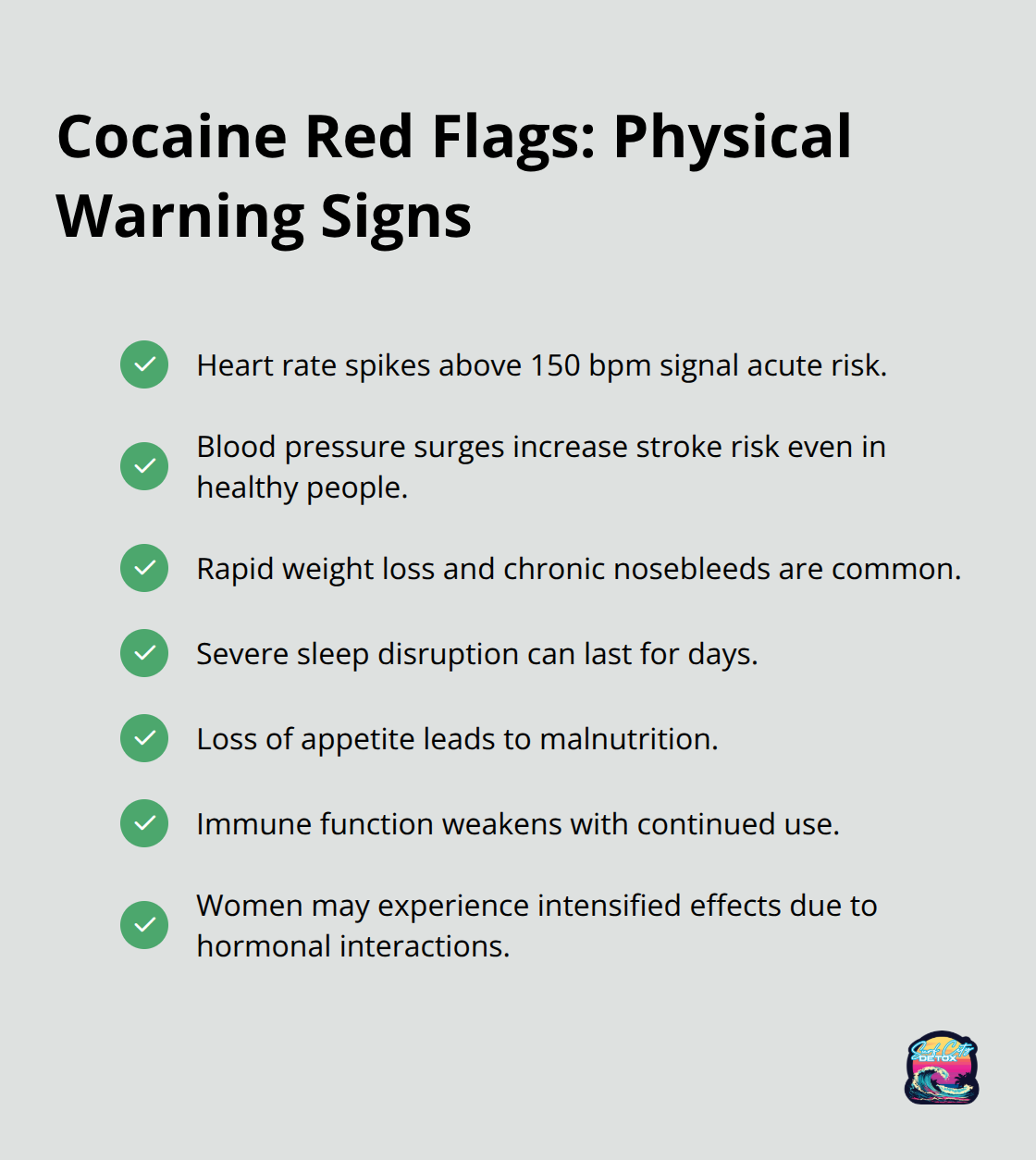
Women face particularly intense effects due to hormonal interactions with cocaine’s powerful stimulant properties.
The Devastating Health Consequences Nobody Talks About
Long-term cocaine use destroys multiple organ systems simultaneously, with cardiovascular damage that occurs after just months of regular use. Emergency room data shows that alcohol involved more than 40 percent of drug abuse-related visits among patients aged 20 or younger in 2011. The drug causes permanent brain structure changes, shrinks gray matter, and damages decision-making regions. Cocaine contributes to thousands of overdose deaths nationwide each year. Users develop rapid tolerance and require increasingly dangerous amounts to achieve the same high, which creates a deadly cycle.
Why Traditional Treatment Methods Fall Short
Standard addiction treatment approaches often fail to address the complex neurological changes that cocaine creates in the brain. Many programs focus solely on abstinence without addressing the underlying trauma and mental health issues that drive addiction. The lack of FDA-approved medications specifically for cocaine addiction means that recovery relies heavily on behavioral interventions and therapeutic support. Holistic therapies like sound healing, hypnotherapy, and meditation help clear the mind, improve focus, and rewire negative thought patterns. This gap in treatment options highlights why innovative, evidence-based approaches become essential for breaking free from cocaine’s grip and achieving lasting recovery.
What Treatment Methods Actually Break Cocaine’s Hold?
Medically supervised detoxification marks the starting point where cocaine addiction treatment becomes effective rather than dangerous. We at Surf City Detox provide 24/7 clinical monitoring during withdrawal because cocaine detox creates severe psychological distress, intense cravings, and potential cardiovascular complications that require professional intervention. The detox process typically lasts 7-10 days, during which medical staff manage symptoms like extreme fatigue, depression, and agitation through targeted medications and therapeutic support.
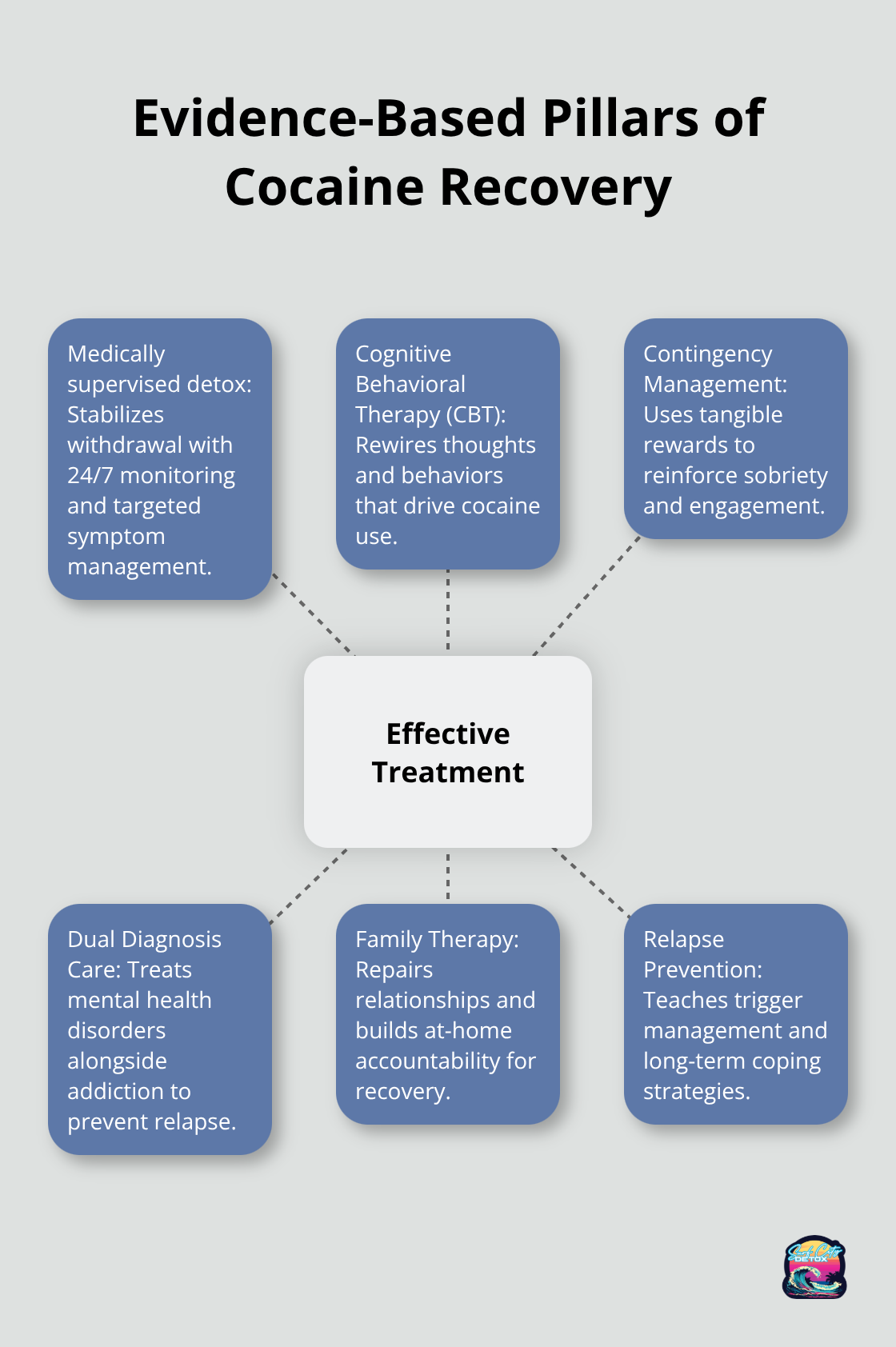
Unlike alcohol or opioid withdrawal, cocaine detox rarely causes life-threatening physical symptoms, but the psychological crash can trigger suicidal thoughts that demand immediate clinical attention.
Cognitive Behavioral Therapy Rewires Addiction Patterns
Cognitive behavioral therapy stands as the gold standard for cocaine addiction treatment because it directly addresses the thought patterns and behaviors that fuel drug use. CBT teaches clients to identify triggers, challenge distorted thinking, and develop practical coping strategies that prevent relapse in high-risk situations. The National Institute on Drug Abuse recognizes CBT as effective for cocaine addiction, with success rates that significantly exceed traditional counseling methods. Contingency management programs complement CBT by providing tangible rewards for clean drug tests and treatment compliance (creating positive reinforcement that competes with cocaine’s reward system). These evidence-based approaches work because they target the specific brain pathways that cocaine has hijacked.
Dual Diagnosis Treatment Addresses Hidden Mental Health Issues
Mental health disorders fuel cocaine addiction in about half of cases, making dual diagnosis treatment essential rather than optional. Depression, anxiety, PTSD, and bipolar disorder often drive individuals to self-medicate with cocaine, creating a dangerous cycle where mental health symptoms worsen addiction and vice versa. Integrated treatment addresses both conditions simultaneously through specialized therapy, psychiatric medication management, and coordinated care plans that prevent one condition from sabotaging recovery from the other. Women face particularly high rates of trauma-related cocaine use (requiring gender-specific approaches that address underlying emotional pain and relationship trauma). Older adults struggling with addiction also require specialized approaches that address age-specific challenges and medical complications.
Advanced Therapeutic Interventions Transform Recovery Outcomes
Modern cocaine treatment programs now incorporate innovative therapeutic methods that address trauma and emotional wounds at their source. EMDR therapy helps clients process traumatic memories that often trigger cocaine use, while trauma-informed care creates safe therapeutic environments where healing can occur. These advanced interventions recognize that addiction stems from deeper psychological pain rather than simple chemical dependency. Family therapy sessions rebuild damaged relationships and create supportive home environments that strengthen long-term recovery success rates (with studies showing higher success rates when families participate actively in treatment). Comprehensive relapse prevention programs help individuals manage triggers and build sustainable sobriety through tailored strategies and ongoing support.
How Do Revolutionary Therapies Heal Addiction at Its Source?
Trauma-Informed Care Addresses Root Causes of Addiction
Trauma-informed care and EMDR therapy target the emotional wounds that fuel cocaine addiction by treating underlying psychological damage rather than surface symptoms. The Substance Abuse and Mental Health Services Administration reports that 75% of women and 60% of men who enter addiction treatment have experienced significant trauma. EMDR therapy helps clients process traumatic memories through bilateral stimulation techniques that reduce emotional intensity and eliminate triggers that previously led to cocaine use.
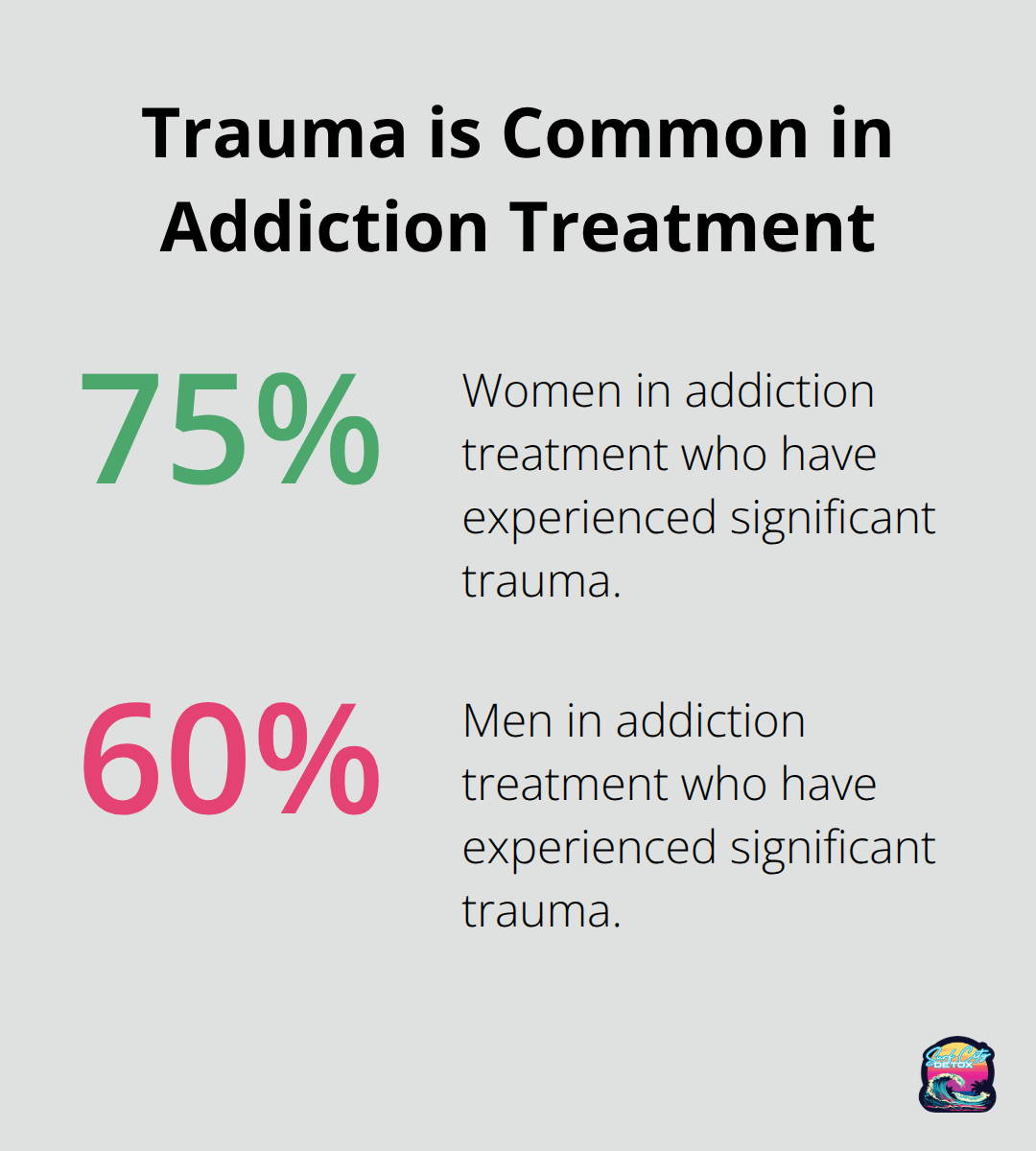
This approach allows the brain to reprocess disturbing memories in a safe therapeutic environment. The process breaks the connection between past trauma and current drug-seeking behavior. Trauma-informed care creates safety throughout treatment and recognizes how trauma affects brain function, relationships, and coping mechanisms.
Family Therapy Rebuilds Damaged Relationships
Family therapy and community support programs rebuild damaged relationships while creating accountability systems that strengthen long-term recovery success. Research shows that substance use disorders have relapse rates of 40-60%, highlighting the importance of comprehensive family involvement in treatment. Family sessions address communication patterns, boundary setting, and trust rebuilding that cocaine addiction has destroyed.
These therapeutic interventions focus on healing family dynamics that often contribute to addiction cycles. Parents learn to set healthy boundaries while offering support. Spouses develop communication skills that reduce conflict and promote recovery. Children receive age-appropriate education about addiction as a disease rather than a moral failing.
Community Support Creates Lasting Recovery Networks
Community support groups like Narcotics Anonymous provide peer connections with others who understand the specific challenges of cocaine recovery. These programs offer 24/7 accessibility through meetings, sponsorship relationships, and crisis support networks. Members share practical strategies for managing cravings, avoiding triggers, and rebuilding their lives without substances.
The shared experience model proves particularly effective for cocaine addiction because users face unique challenges like intense psychological cravings and social stigma. Group members hold each other accountable while celebrating recovery milestones together (creating positive reinforcement that replaces drug-seeking behavior).
Holistic Methods Rewire Brain Function Naturally
Holistic treatment methods including mindfulness meditation, yoga, and wellness practices help rewire the brain’s stress response system that cocaine has damaged. These practices teach clients to manage anxiety, depression, and cravings through natural techniques rather than chemical substances. Mindfulness meditation shows measurable improvements in brain function after just eight weeks of practice.
Yoga combines physical movement with breath work to reduce cortisol levels and activate the parasympathetic nervous system. Nutritional therapy addresses the malnutrition and metabolic damage that cocaine creates in the body. Art therapy provides creative outlets for expressing emotions that clients struggle to verbalize in traditional talk therapy sessions.
Final Thoughts
Effective cocaine addiction treatment combines medically supervised detox, evidence-based therapies like CBT, and innovative approaches that include trauma-informed care and EMDR therapy. These comprehensive strategies address both the neurological changes cocaine creates and the underlying emotional wounds that fuel addiction. Professional support provides the clinical expertise and 24/7 monitoring necessary to navigate withdrawal safely and build sustainable coping skills.
Recovery becomes possible when you have the right support system and evidence-based treatment approaches. Each person’s addiction story involves unique trauma, mental health challenges, and family dynamics that require individualized treatment plans. We at Surf City Detox provide integrated care that addresses addiction and co-occurring mental health disorders (helping clients heal in a supportive environment designed for lasting recovery).
The path to freedom from cocaine addiction begins with a single phone call. Our personalized approach allows for the individualized attention that transforms lives and breaks the cycle of dependency. Contact Surf City Detox today to start your journey toward lasting recovery and reclaim the life you deserve.

